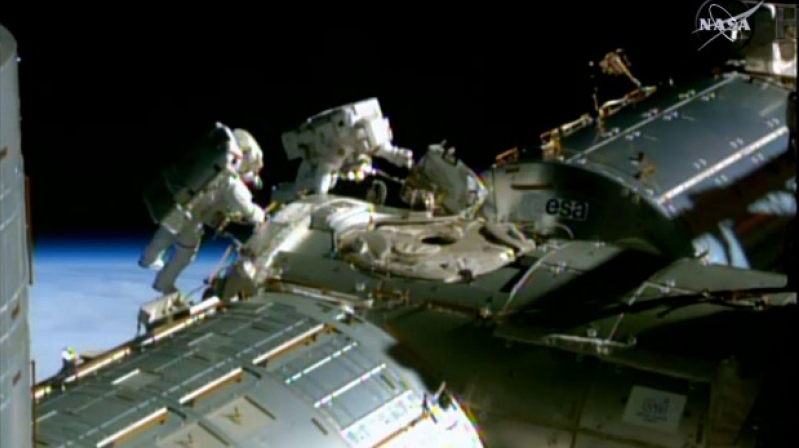
A pair of U.S. astronauts floated outside the International Space Station on Wednesday doing electrical work to prepare the low-orbit outpost for new commercial space taxis and to tackle routine maintenance jobs.
Station commander Scott Kelly and flight engineer Kjell Lindgren left the station's airlock around 8:30 a.m. Eastern time (1230 GMT) to begin the spacewalk, planned to last six and a half hours, the first for both astronauts.
NASA had hoped to have the station outfitted with two new berthing slips before the end of the year so that commercial space taxis under development by Boeing and privately owned Space Exploration Technologies, known as SpaceX, would have places to park.
But the first docking adapter was lost in a botched SpaceX Dragon cargo run in June.
"We haven't been able to do everything we hoped we would," Kenneth Todd, station operations integration manager, told reporters last week.
Still, NASA expects to have the docking ports ready before Boeing and SpaceX are ready to begin test flights of their crewed capsules in 2017, Todd added.
Kelly and Lindgren will pick up work from NASA's last spacewalks nearly eight months ago. The astronauts plan to install electrical cables that will be needed for the new docking ports, the first of which is now expected to reach the station in early 2016.
NASA is working on getting a replacement for the equipment lost in June and hopes to have it aboard the station in April 2017, Todd said.
Kelly and Lindgren also plan to install a thermal cover on the station's $2 billion Alpha Magnetic Spectrometer particle detector, a multinational experiment intended to shed light on dark matter, cosmic rays and other high-energy phenomena.
The thermal cover will better protect the instrument against the temperature extremes in space, which scientists hope will prolong its life.
The station, a $100 billion research laboratory that flies about 250 miles (400 km) above Earth, is expected to remain operational until at least 2024.
The station, which is owned and operated by a partnership of 15 nations, has been continuously staffed by rotating crews of astronauts and cosmonauts for 15 years.
(Reporting by Irene Klotz; Editing by David Adams and Bill Rigby)






